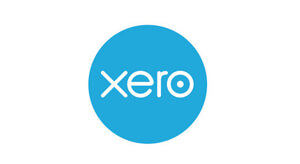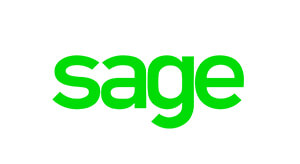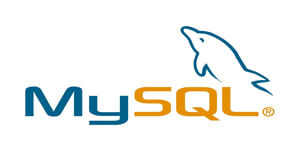Running a restaurant is no small feat. From managing a team to perfecting dishes, the demands can feel endless. But behind every successful restaurant, there’s a well-thought-out financial plan that provides the necessary structure for profitability and growth. Having a robust financial plan can be the difference between a restaurant that thrives and one that struggles to make ends meet.
Understanding and implementing effective financial management practices like bookkeeping, forecasting, and budgeting is key. Whether you’re a new restaurant owner or an established business looking to scale, a solid financial plan serves as your compass. With Momentum Bookkeeping’s expert services, crafting this plan becomes less of a burden and more of an empowering strategy for success.
What Are Restaurant Financials?
Restaurant financials refer to the various financial statements that track the restaurant’s performance, such as the income statement, balance sheet, and cash flow statement. These documents provide invaluable insights into how the business is performing financially and can highlight areas for improvement.
The three main components of restaurant financials include:
- Income Statement: This shows the restaurant’s revenue and expenses, giving insight into profitability over a specific period.
- Balance Sheet: It details assets, liabilities, and equity, helping owners assess their restaurant’s overall financial health.
- Cash Flow Statement: It provides a snapshot of cash inflows and outflows, ensuring the business has enough liquidity to meet short-term obligations.
Each of these statements is crucial for long-term financial planning and decision-making.

What is a Financial Plan for a Restaurant?
A financial plan for a restaurant is a comprehensive blueprint that outlines your business’s financial goals, projections, and strategies to achieve them. It serves as a roadmap, detailing how the restaurant will generate income, control costs, and manage profits. This plan not only tracks day-to-day expenses but also sets long-term financial targets, helping owners make informed decisions.
Key components of a restaurant’s financial plan include:
- Sales Forecasts: Predicting future revenue based on historical data and market trends.
- Expense Budgeting: Detailing fixed and variable costs, including rent, utilities, food, and labour.
- Cash Flow Analysis: Monitoring cash inflows and outflows to ensure the business maintains a positive cash flow at all times.
Having a financial plan makes it easier to make adjustments, especially when unforeseen challenges arise. With the right tools, such as Xero bookkeeping, Sage accounting software or double-entry bookkeeping, restaurant owners can track these components efficiently and with precision.
What Should Be Included in a Financial Plan?
A comprehensive financial plan doesn’t just track your business’s income and expenses, it provides the framework for growth. Here’s a closer look at what should be included:
- Sales Forecasting: A well-constructed sales forecast helps estimate future revenue based on past performance, customer trends, and seasonal variations. For restaurants, this might include projected sales from food, beverages, and special promotions.
- Expense Management: To ensure profitability, restaurants need to keep track of every cost, from raw ingredients to staff wages. Detailed breakdowns of direct and indirect costs allow owners to make strategic adjustments where needed.
- Cash Flow Statements: These track the money coming in and out of the business. A healthy cash flow ensures that the restaurant can cover expenses like payroll, utilities, and suppliers without scrambling for funds.
- Profit and Loss Statement: This provides an overview of the business’s financial health by comparing revenue against expenses over a specific period, helping to determine whether the restaurant is turning a profit.
- Balance Sheet: The balance sheet shows the restaurant’s assets, liabilities, and equity, offering insight into the financial stability of the business.
A complete financial plan reveals a restaurant’s financial health, aiding informed decisions and staying on track.

How Do You Do a Financial Analysis for a Restaurant?
Financial analysis helps restaurant owners assess the health of their business by evaluating financial data, identifying trends, and pinpointing potential issues before they become problems. The first step is gathering accurate data, which can be streamlined through the use of tools like Xero bookkeeping or double-entry bookkeeping. These systems ensure accuracy by tracking both debits and credits, preventing errors in financial statements.
Key aspects of financial analysis include:
- Revenue Trends: Tracking sales across different periods and comparing them to industry benchmarks.
- Cost Analysis: Identifying which areas of your restaurant are eating into profits, such as food waste, overstaffing, or underpricing.
- Profit Margins: Analyzing your profit margins per dish or category to understand what brings in the most revenue and what drains your resources.
By reviewing these factors, restaurant owners can adjust their strategy to optimise their profitability. Additionally, it’s crucial to regularly conduct financial analysis to stay ahead of any financial obstacles.
Why Financial Forecasting is Key to a Restaurant’s Success?
Financial forecasting plays a pivotal role in a restaurant’s ability to plan for the future. With accurate forecasts, owners can better prepare for seasonal changes, fluctuating customer demands, and unexpected costs. It’s a key tool for securing investments or loans with realistic projections.
By using financial forecasting tools, restaurant owners can predict cash flow, revenue, and expenses over a specific time frame. This helps with budgeting, pricing, hiring, and menu design. Without solid forecasting, it’s difficult to make confident decisions for your restaurant’s future growth.
The Role of Bookkeeping in Maintaining Financial Health
Maintaining a regular and accurate bookkeeping routine is critical to the success of any restaurant. Track income and expenses to keep your financial plan accurate for informed decisions.
Local bookkeeping services also offer the advantage of having a bookkeeper familiar with the nuances of the local market and industry standards. At Momentum Bookkeeping we offer professional bookkeeping services that can save restaurant owners time and ensure their finances are properly managed.
Wrapping Up…
Creating a financial plan for your restaurant is not just about managing numbers, it’s about ensuring long-term success. With the right strategies, tools, and financial guidance, such as those provided by Momentum Bookkeeping, you can confidently steer your business toward profitability. Start strong or optimise operations with a growth-focused financial plan.
Ready to get started? Contact Momentum Bookkeeping today for expert assistance with all your restaurant’s financial needs. We offer tailored bookkeeping services that help you stay on top of your finances and focus on what you do best, running a successful restaurant.

Momentum Bookkeeping Ltd
Mentieth House, 29 Park Circus, Glasgow, G3 6AP
Call. 0141 375 1240
Email. info@mvbooks.co.uk





